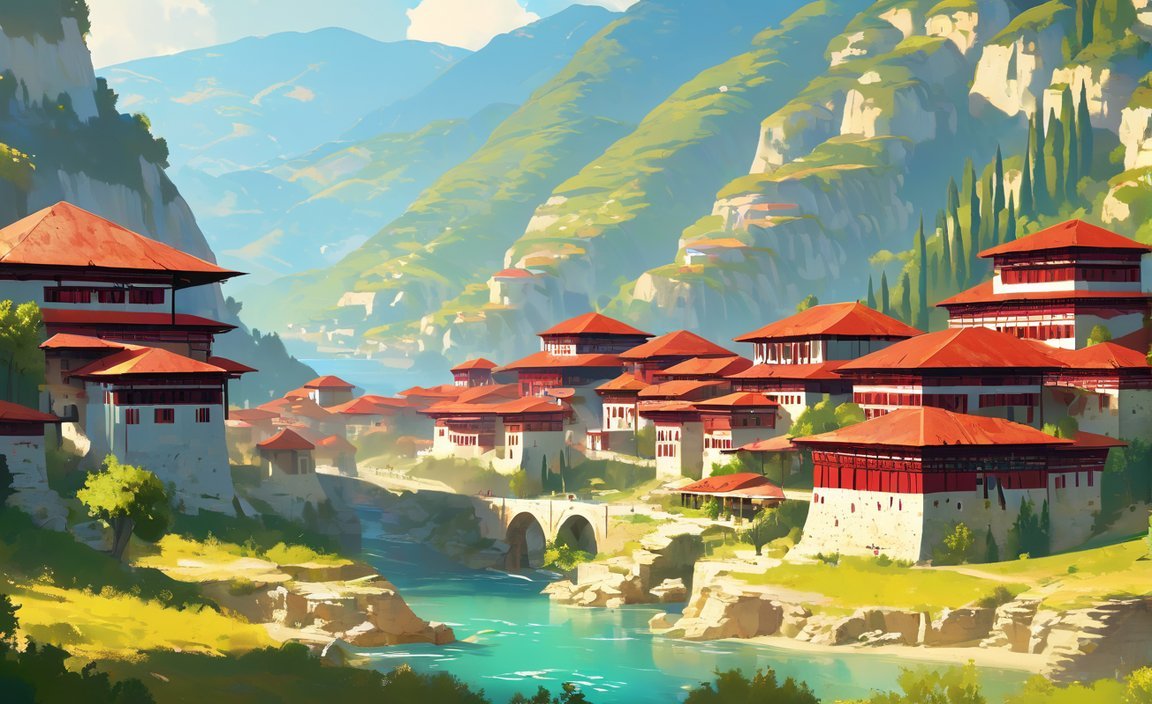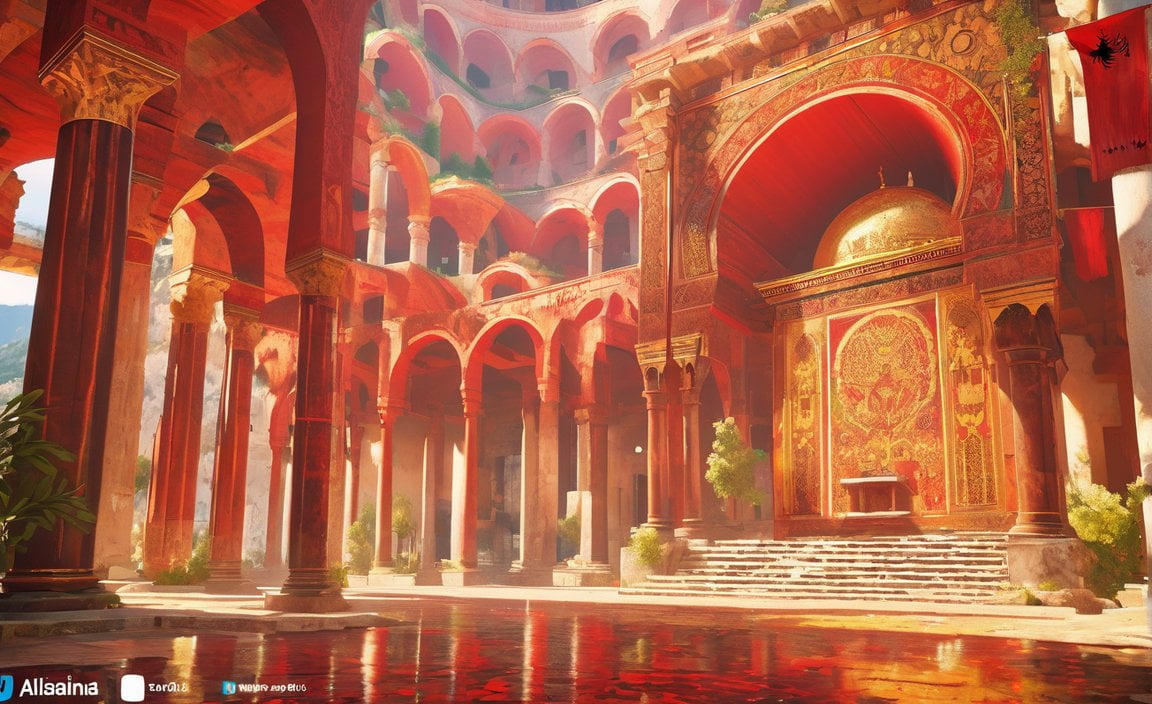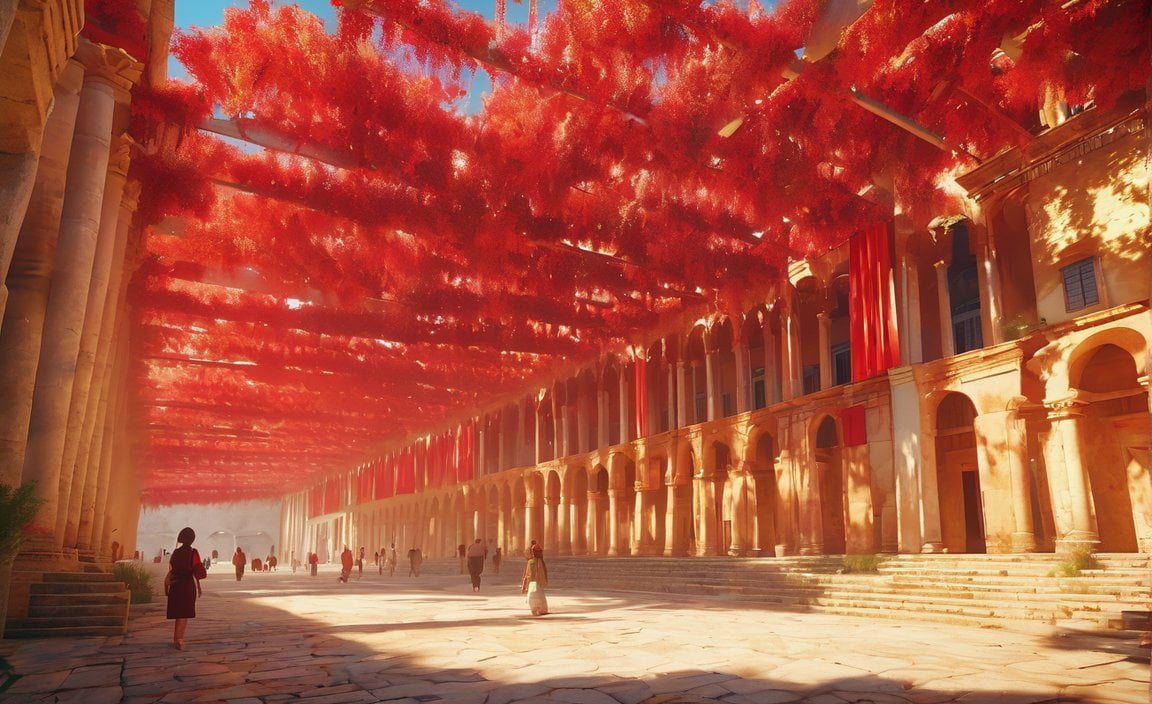Welcome to a world of intriguing discoveries as we delve into the lesser-known facts about Albania. This captivating country, tucked away in the heart of the Balkans, holds a treasure trove of vibrant traditions, remarkable landmarks, and breathtaking natural beauty. Join us on a journey as we uncover the hidden gems that make Albania a truly unique and enchanting destination.
Key Takeaways:
- Albania is a country located in Southeast Europe, with an area slightly smaller than Belgium or the U.S. state of Maryland.
- The capital and largest city of Albania is Tirana, home to a significant portion of the population.
- Albania declared its independence in 1912 following the Balkan Wars.
- During the communist regime from 1944 to 1990, Albania became a closed state and the first atheist country in the world.
- The country has a rich and diverse cultural heritage influenced by its historical affiliations with the Roman, Byzantine, and Ottoman empires.
- Albania is one of the few Muslim-majority countries in Europe, with significant Christian and Bektashi minorities.
- Famous personalities from Albania include Mother Teresa, Ismail Kadare, and Rita Ora.
- Albania is known for its natural beauty, hospitality, and cuisine.
- Reputable sources to learn more about Albania include The Fact File and Nations Online.
Facts on Albania

Introduction
Albania, known as the Republic of Albania, is a captivating country nestled in Southeast Europe. With breathtaking landscapes and a rich cultural heritage, this hidden gem is a treasure trove of fascinating facts. In this article, we will delve into the unique aspects that make Albania a truly remarkable destination.
Albania: A Land of Rich History
- A Dynamic Republic: Albania is the fourth republic to be established in its history. Its tumultuous past has shaped its vibrant culture and storied traditions.
- The First Atheist State: In 1967, Albania made global history by proclaiming itself the first atheist state. Under the regime of Enver Hoxha, religious practices were strictly forbidden, resulting in the closure of mosques, churches, and other places of worship.
Cherished Icons and Influences
- Mother Teresa’s Legacy: The renowned Catholic nun and Nobel Peace Prize laureate, Mother Teresa, was born in Skopje (now North Macedonia) to an Albanian family. She is considered a national heroine, admired for her selfless devotion to helping the poor and disadvantaged.
Rich Cultural Heritage
- Historical Influences: Albania’s cultural heritage is deeply rooted in its historical affiliations with the Roman, Byzantine, and Ottoman empires. The remnants of these civilizations can still be seen in the country’s stunning landmarks and architectural marvels.
The Beauty of Diversity
- Religious Harmony: While Albania is predominantly a Muslim-majority country, it boasts a harmonious coexistence of various religious groups. Christianity and Bektashism also play significant roles in the religious fabric of the nation.
The Natural Splendor of Albania
- Unspoiled Landscapes: Albania is renowned for its natural beauty and diverse landscapes. From pristine beaches along the Adriatic and Ionian Sea to its awe-inspiring mountain ranges, this country offers a picturesque haven for nature enthusiasts.
Where to Learn More
To further explore the captivating world of Albania, you can refer to reputable sources such as:
So pack your bags and prepare to be enchanted by Albania – a land of eagles, history, and hidden gems waiting to be discovered.
Conclusion
In conclusion, Albania is a treasure trove of fascinating facts, boasting a rich history, diverse culture, and awe-inspiring natural landscapes. From Mother Teresa’s enduring legacy to the country’s unique position as the first atheist state, Albania offers a captivating tapestry of experiences for curious travelers. Explore its hidden gems and uncover the secrets of this enchanting destination.
Here are some fascinating facts that will surely spark your interest:
- Fun facts on silver – Did you know that silver is not only a precious metal but also has antibacterial properties? Discover more intriguing facts about silver that will make you appreciate this shining element even more.
- Facts about Vatican City – Immerse yourself in the rich history and unique characteristics of Vatican City. From being the smallest independent state to housing the magnificent St. Peter’s Square, there’s a world of interesting facts waiting to be explored.
- Interesting facts about Antarctica – Dive into the mesmerizing world of Antarctica, where you’ll witness mesmerizing icebergs, experience extreme temperatures, and encounter a diverse range of wildlife. Discover fascinating facts about this frozen continent that will leave you in awe.
- Fun facts about Serbia – Serbia, a land of rich culture and history, has countless intriguing facts to offer. From its vibrant festivals to its mouthwatering cuisine, you’ll be captivated by the wonders this country has to offer.
- Fascinating facts of India – Prepare to be enchanted by the enchanting land of India, with its diverse landscapes, ancient traditions, and vibrant festivals. Delve into a world of fascinating facts that will make you appreciate the beauty and complexity of this incredible nation.
Feel free to click on any of the links above to discover more about these captivating subjects!
Thriving Culinary Scene and Traditional Albanian Dishes
Albanian cuisine is a vibrant fusion of flavors influenced by its neighboring countries and Balkan traditions. From hearty stews to mouthwatering desserts, the country’s thriving culinary scene offers a delightful journey for food enthusiasts. Let’s uncover some fascinating facts about the traditional Albanian dishes that make the nation’s cuisine truly unique.
Influences from the Neighbors
Albanian cuisine has been shaped by its Greek and Ottoman neighbors, as well as the culinary traditions of other Balkan countries like Macedonia and Serbia. This rich blend of flavors and techniques creates a diverse culinary landscape that highlights the country’s cultural heritage.
Regional Culinary Identities
Different regions in Albania have their own distinctive culinary identities, which are shaped by the geography and ingredient availability of each area. In the north, hearty stews such as Albanian stew dominate the culinary scene, while coastal areas offer an abundance of fresh seafood and lighter meals. Inland, grilled meat takes center stage, providing a delightful feast for meat lovers.
Traditional Albanian Dishes
Albanian cuisine is famous for its array of fresh, flavorful, and affordable dishes. Let’s explore some traditional Albanian dishes that are sure to tantalize your taste buds:
- Jani me fasule: This white bean soup is a family favorite throughout Eastern Europe and is known by different names in various regions. Packed with hearty flavors, it’s a beloved comfort food.
- Qumështor: A simple yet delicious baked custard dessert made with eggs, milk, flour, butter, and sugar. It’s particularly enjoyed in Orthodox neighborhoods in the southeastern part of Albania.
- Tavë Kosi: Considered Albania’s unofficial national dish, this casserole is similar to Greek moussaka. It combines seasoned yogurt, rice, and meat to create a creamy and flavorful delight.
- Fërgesë Tirane: As one of Albania’s national dishes, this vegetable tray-bake showcases the country’s love for fresh produce. Baked vegetables are complemented by salted cheese, resulting in a mouthwatering combination of flavors.
- Flija: This unique layered pancake is made with different pancake batters and traditionally cooked using a saç. The process of layering and cooking creates a deliciously crispy and satisfying dish.
- Byrek: An iconic Albanian dish, the byrek is a salty pie made with thinly rolled dough layers. It can be filled with various ingredients such as cheese, spinach, or meat, offering a perfect savory treat.
Key Takeaways:
- Albanian cuisine is influenced by Greek, Ottoman, and other Balkan cooking traditions.
- Different regions in Albania have their own culinary identities shaped by geography and ingredient availability.
- Traditional Albanian dishes include jani me fasule, qumështor, tavë kosi, fërgesë tirane, flija, and byrek.
- Albanian cuisine features fresh, flavorful, and affordable dishes influenced by Balkan, Mediterranean, and Ottoman culinary traditions.
Sources:
- Travel Food Atlas: Albanian Food: 15 Must-Try Traditional Dishes of Albania
- TasteAtlas: 10 Most Popular Albanian Dishes
Breathtaking Natural Wonders of Albania’s Landscapes
Albania, a small and often overlooked country in Europe, is home to a plethora of natural wonders that will leave you in awe. From stunning beaches to majestic mountains, Albania’s landscapes offer a diverse range of breathtaking sights. Let’s delve into the hidden gems of Albania’s natural beauty:
Drymades Beach, Albanian Riviera
One of the highlights of Albania’s coastline is the picturesque Drymades Beach, located in the southern part of the country. As part of the magnificent Albanian Riviera, this stretch of coastline offers mesmerizing views and crystal-clear waters. Whether you’re looking to relax on the pristine white sands or take a refreshing dip in the azure sea, Drymades Beach is a must-visit destination.
Lake Ohrid
Shared between Albania and North Macedonia, Lake Ohrid is a UNESCO World Heritage Site and is considered one of the most beautiful lakes in the country. The lake’s breathtaking landscapes and rich biodiversity make it a haven for nature enthusiasts. Whether you’re exploring the lake’s sparkling waters or marveling at its surrounding mountains, Lake Ohrid is a true gem of Albania’s natural wonders.
Theth Valley
For those seeking an adventure in the Albanian Alps, Theth Valley is a must-visit destination. Tucked away in the heart of the alpine region, Theth Valley offers stunning natural scenery, including towering mountains, cascading waterfalls, and traditional Albanian villages. Whether you’re an avid hiker or simply want to immerse yourself in the tranquility of nature, Theth Valley will leave you breathless with its beauty.
Gashi Forest
Considered Albania’s “green lung,” Gashi Forest is a majestic natural wonder that showcases the country’s diverse flora and fauna. This enchanting forest is a paradise for nature lovers and hikers, offering a serene environment to explore and connect with the natural world. Lose yourself in the beauty of Gashi Forest as you discover its hidden trails and marvel at the wonders of Mother Nature.
The Blue Eye Spring
Located near the picturesque beach town of Saranda, the Blue Eye Spring is a true natural wonder of Albania. This freshwater spring forms a mesmerizing blue pool surrounded by lush greenery. Its crystal-clear water and vibrant colors make it a sight to behold. Take a moment to soak in the tranquility of the Blue Eye Spring and marvel at its natural beauty.
Key Takeaways:
– Albania is home to breathtaking natural wonders, from stunning beaches to majestic mountains.
– Drymades Beach offers pristine white sands and crystal-clear waters along the Albanian Riviera.
– Lake Ohrid boasts remarkable landscapes and rich biodiversity as a UNESCO World Heritage Site.
– Theth Valley in the Albanian Alps captivates with its breathtaking scenery and traditional villages.
– Gashi Forest showcases Albania’s incredible flora and fauna, providing a serene haven for nature lovers.
– The Blue Eye Spring near Saranda offers a mesmerizing natural pool with crystal-clear waters.
Sources:
[^5^]: EnVols – “Albania: 5 breathtaking natural sites not to be missed”
[^8^]: Breathe in Travel – “The most spectacular landscapes in Albania”
Albania’s Transition into a Popular Tourist Destination
With its rich history, vibrant culture, and stunning landscapes, Albania has been steadily making its mark as a popular tourist destination. The country’s transition from its turbulent past to a thriving travel hotspot is an intriguing journey that showcases its unique appeal. Let’s delve into some fascinating facts about Albania’s transformation into a sought-after place to visit.
The Rising Star of Balkan Tourism
Albania’s economic and political transition in the 1990s paved the way for a newfound focus on tourism as a driver of economic development. Today, the Ministry of Tourism in Albania has set an ambitious goal to accommodate approximately 10 million tourists by 2023. This target reflects the country’s determination to position itself as a premier travel destination in the Balkans.
Embracing Eco-Tourism and High-End Experiences
To attract visitors seeking sustainable and exclusive travel experiences, Albania’s tourism industry has pivoted towards eco-tourism and high-end offerings. The country’s diverse attractions include its breathtaking coastline along the Adriatic and Ionian Seas, untouched natural landscapes, and opportunities for agritourism. These eco-friendly initiatives not only showcase Albania’s stunning beauty but also contribute to the preservation of its environment.
A Unique Alternative away from Mass Tourism
One of the factors that set Albania apart is its ability to offer affordable prices and a unique travel experience that steers clear of mass tourism. The country’s natural beauty, rich history, and vibrant culture create a perfect blend for travelers seeking an off-the-beaten-path destination. As Albania gradually gains popularity, it presents an alternative to crowded tourist hotspots, providing an authentic taste of its traditions and landmarks.
A Solution to Mass Emigration
Mass emigration has been a significant challenge for Albania, leading to a brain drain and a decline in its population. However, the growth of its tourism industry offers a potential solution to this problem. By attracting more visitors and generating economic opportunities, Albania can create employment and stop the mass exodus of its citizens. Tourism has become a source of hope and resilience for the country’s future.
Key Takeaways:
- Albania has undergone a remarkable transition, positioning itself as a popular tourist destination in the Balkans.
- The country’s tourism industry is embracing eco-tourism and high-end experiences to attract visitors.
- Albania offers an affordable and unique alternative to mass tourism, showcasing its rich cultural heritage and breathtaking landscapes.
- The growth of tourism in Albania has the potential to help stop mass emigration and drive economic development.
Sources:
– Into Albania
– World Bank Blogs

FAQ
Q1: What are some key historical events in Albania’s history?
A1: Albania has gone through significant historical events, including its declaration of independence in 1912 following the Balkan Wars, the establishment of the communist regime under Enver Hoxha from 1944 to 1990, and being proclaimed as the first atheist state in the world in 1967.
Q2: What is Albania known for?
A2: Albania is known for its rich cultural heritage, diverse landscapes, and warm hospitality. It has a unique blend of influences from Roman, Byzantine, and Ottoman empires, and its cuisine is influenced by Greek and Ottoman traditions.
Q3: What are some famous landmarks in Albania?
A3: Albania is home to several remarkable landmarks, including the historic city of Berat, known as the “City of a Thousand Windows,” the ancient ruins of Butrint, a UNESCO World Heritage Site, and the stunning mountainous region of Valbona Valley National Park.
Q4: How is Albanian cuisine influenced by its neighbors?
A4: Albanian cuisine is influenced by its Greek and Ottoman neighbors, as well as other Balkan cuisines like Macedonian and Serbian. The cuisine features a variety of fresh and flavorful dishes, with influences from Balkan, Mediterranean, and Ottoman traditions.
Q5: What are some popular tourist attractions in Albania?
A5: Albania offers a range of attractions for tourists, including the beautiful beaches along the Albanian Riviera, the picturesque Lake Ohrid, the stunning Theth Valley in the Albanian Alps, and the natural wonder of the Blue Eye Spring.
















